As Easter approaches, you may be one of many buying extra eggs to keep up with the Easter Bunny! Creating the perfect egg hunt while dyeing plenty of hard boiled eggs to eat with loved ones requires a lot of preparation (and eggs). You may find yourself with a bunch of extras leftover from the festivities (and ones that are just about ready to expire). However, what you might not know is that these eggs can actually be useful to help your spring garden come to life stronger and healthier than ever! Channeling their calcium, phosphorus, and other nutrients necessary for proper soil and plant health, here are some great ways to use up old eggs.

How to Test Your Eggs
Grab a large bowl and fill it with cold water. When you place your egg in the bowl, check and see where it lands. If it floats the egg is expired and should not be eaten. If it sinks, the egg is still good to eat!
Generally, your eggs will still be “good” even after an expiration date if there are no visible signs of cracks or lines on the shell. Keep them in the refrigerator for up to 4 weeks past the expiration date. After that, you’d best get to gardening!
1. Create Your Own Compost
After frying up some eggs for breakfast, don’t just throw away the shells. They are actually great composting materials that easily break down and reduce your food waste! They are rich in nutrients and create easy, thick compost. Make sure to crush up the shells to a fine grain. The smaller they are, the faster your compost will be made. Spread the shells all throughout your garden beds or planters and watch your sprouting seeds stand tall this summer.

2. Use the Shells as Deterrents
Egg shells can be dispersed in your garden beds to deter pests from sneaking in. The hard edges of the shells irritate slugs and will keep them out of your garden. You can place the shells around the edges of your garden to act as barriers to slugs. The shells also keep stray cats from using your garden as their personal litter box!
3. Feed the Soil
Spreading crushed shells throughout your garden is a great way for the soil to soak up nutrients from the eggs such as calcium, phosphorus, and nitrogen. We recommend testing your soil for pH levels before trying out this trick, however, to make sure that your soil is deficient in these areas so it can properly soak up all of the nutrients from the eggs. If your garden’s soil is dry, finely grained, or loose like sand, spreading shells around is sure to make your soil dark, damp, and ready for growth.
Please note, we do not recommend putting raw egg in the soil, as the smell would attract pests and perforate throughout your space. However, a neat trick to cure blossom end rot, common in tomato plants for example, is to bury whole eggs alongside the plants. The eggs will help the soil soak up essential nutrients and help your plants grow stronger.

4. Feed the Birds
While our bird feeders are colorful accents to any garden, you could also feed them with your leftover eggs! Crushed shells throughout your garden also serve to help feed your local bird population without having them nip at your produce. The shells give the birds nutrients and an easy target! For this reason alone, it’s always a good idea to save your eggshells to scatter them in your garden and help out the locals.
5. Get Started
If you have half of an eggshell, use it to help get new seeds to sprout in your garden! When you crack open an egg, plant a seed in the yolk. The nutrients will help you seed sprout. When you plant it in the soil, make sure to crush up the rest of the eggshell to spread throughout your pots or planters.
6. Help Out Struggling Plants
Some plants may grow with blossom end rot. This condition is caused by a calcium deficiency in the soil and therefore plants. It makes the plants unable to regulate water intake that impacts their growth. When you plant a whole egg with your plant the next year, this may help the plant grow with an increase of calcium present in the soil.

These methods of growing your garden may seem a bit odd, but the proof is in the soil! If you’re struggling to grow some seeds this spring and you have a lot of leftover eggs or eggshells this Easter, try out some new methods to stave off food waste. It will be a sure way to spice up your lawn or garden this year. If you’re looking for something more flashy, check out our Easter inflatables, too! The Easter Bunny would be proud!
For extra Easter resources, check out our blog called How to Care For Beautiful Easter Flowers to get your garden growing!
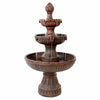
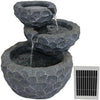
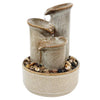

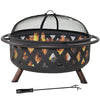
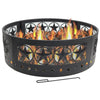

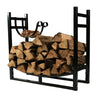
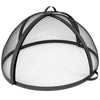
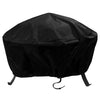
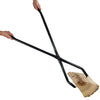
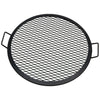

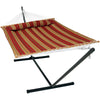
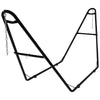

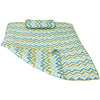

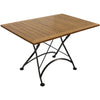

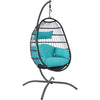

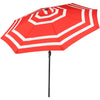
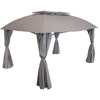

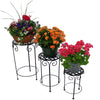
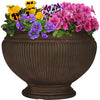
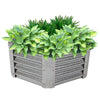
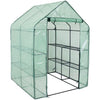
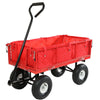
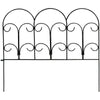
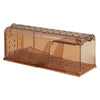
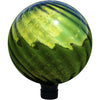



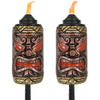


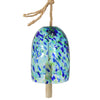



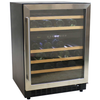


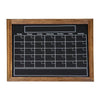













3 comments
Lily E Young
Can I put whole uncooked eggs in my flower beds that are over a month old
Sally
Using whole eggs for blossom end rot – do you use raw or boiled eggs.?
ann harford
My egg purchase per week is 2dozen for everything an egg can do for.6children.i kept shells against slugs in veg patch.
Now you have told me od other shell or whole new egg is amazing
Use of soil improvement and compost..thank you very much.